Newsletter I/2019
Newsletter I/2019
Editorial
Liebe Leserinnen und Leser,
re:constitution – Exchange and Analysis on Democracy and the Rule of Law in Europe ist ein neues Programm am Forum Transregionale Studien, das gemeinsam mit Democracy Reporting International durchgeführt wird. Bis zu 20 Fellowships pro Jahr werden jüngere Rechtswissenschaftler*innen und -praktiker*innen aus Ländern der Europäischen Union mit einem Projekt ihrer Wahl zu Stagen in ein anderes europäisches Land führen. Die Fellows treffen sich mehrmals im Jahr zu 3-5-tägigen Gruppenphasen in Berlin oder an Partnerinstituten u.a. in Bukarest, Paris, Luxemburg, Sofia oder Wien. Weitere Elemente des Programms sind re:constitution-Seminare mit erfahrenen Rechtswissenschaftler*innen und -praktiker*innen zu themenbezogenen Debatten und re:constitution-Analyse. Mit diesen Elementen soll ein europäisches Netzwerk aufgebaut, die Diskussion über die Fragen der rechtlichen und politischen Verfassung Europas intensiviert und durch Analysen und Publikationen vermittelt werden. Das Programm wird von Christoph Möllers, Professor für Öffentliches Recht an der Humboldt-Universität zu Berlin und Permanent Fellow des Wissenschaftskollegs zu Berlin geleitet und durch die Stiftung Mercator gefördert. Eine Presseerklärung finden Sie hier.
Mit re:constitution unterstützt das Forum nach Rechtskulturen (2010-13) erneut ein rechtswissenschaftliches Programm. Erstmalig wird am Forum Europa, oder genauer, die Europäische Union, als Region mit Fragen in den Blick genommen, mit denen wir bislang unsere Nachbarregionen betrachtet haben. In dem Workshop »Citizenship und Property« etwa, der am 8. und 9. Juli von zwei Fellows des Programms Europa im Nahen Osten – Der Nahe Osten in Europa, Pascale Ghazaleh und Seda Altug, geleitet und an der Berlin Graduate School Muslim Cultures and Societies der Freien Universität Berlin stattfinden wird, sollen Fragen nach dem Spannungsverhältnis von Staatsbürgerschaft und Souveränität in Bezug auf öffentliche Güter diskutiert werden. Wer bestimmt, was öffentliche Güter sind und entscheidet im Namen des Volkes über ihre Verwendung?
Bei dieser Gelegenheit möchten wir auf die bevorstehenden Vorträge von Pheng Cheah (UC Berkeley), »Tools for Rethinking Postcolonial World Literature« und Venkat Mani (University Wisconsin-Madison) zum Thema »Addresses of our Last Homes: Refugees and Hyperlinked Literary Histories« hinweisen, die am 15. und 18. Juli im Rahmen der Transregionalen Akademie »Kleine Literaturen« am Leibniz-Zentrum für Literatur- und Kulturforschung in Berlin stattfinden wird.
Wir freuen uns, dass das Forschungsprogramm Art Histories and Aesthetic Practices nach sieben erfolgreichen und guten Jahren am Forum ab Herbst 2019 als 4A Laboratory: Art Histories, Archaeologies, Anthropologies, Aesthetics in einer neuen institutionellen Konstellation mit dem Kunsthistorischen Institut Florenz, den Staatlichen Museen und in Kooperation mit der Humboldt-Universität zu Berlin und dem Forum fortgeführt wird. Prisma Ukraïna wird seine Arbeit dank einer Förderzusage des Landes Berlin über zwei weitere Jahre am Forum fortführen können. Für EUME konnten wir die Grundfinanzierung für weitere drei Jahre sichern. Mittel der Alexander-von-Humboldt-, Fritz-Thyssen-, Gerda-Henkel-, Möllgaard-, Volkswagen-, Zeit-Stiftung sowie des Doha Centers und der Philipp-Schwartz-Initiative werden weitere Wissenschaftler*innen der südlichen oder östlichen Nachbarn der Europäischen Union ans Forum führen.
Weitere Informationen zu den Veranstaltungen, Initiativen und Publikationen des Forums finden Sie in unserem Newsletter. Zur Lektüre, zum Besuch der Veranstaltungen des Forums, seiner Programme und Blogs möchte ich Sie herzlich einladen.
Herzliche Grüße
Georges Khalil
Akademischer Koordinator
~~~
Dear readers,
re:constitution – Exchange and Analysis on Democracy and the Rule of Law in Europe is anew programat the Forum Transregionale Studien, carried out together withDemocracy Reporting International. Up to 20 fellowships per year will take younger legal scholars and practitioners from European Union countries with projects of their own choice for short professional or research internships in another European country. The Fellows will meet several times a year at 3- to 5-day group phases in Berlin or at partner institutes in Bucharest, Paris, Luxemburg, Sofia, Vienna, or other cities. Additional components of the program include re:constitution seminars with experienced legal scholars and practitioners on thematic debates and re:constitution analysis. The aim with these components is to build up a European network that intensifies the discussion of questions of Europe’s legal and political constitution and that mediates them with analyses and publications. The program will be headed byChristoph Möllers, Professor for Public Law at the Humboldt University Berlin and Permanent Fellow of the Wissenschaftskolleg zu Berlin, and funded by theStiftung Mercator. You will find the press releasehere.
AfterRechtskulturen(2010-13), with re:constitution, the Forum again supports a jurisprudential program. For the first time at the Forum, Europe – or more precisely, the European Union – will be examined as a region with questions we have so far applied to our neighboring regions. For example, the workshop “Citizenship und Property”, headed by two Fellows of the programEurope in the Middle East—The Middle East in Europe, Pascale Ghazaleh and Seda Altug, will be held on 8 and 9 July at the Berlin Graduate School Muslim Cultures and Societies of the Free University Berlin and will discuss issues of the tension between citizenship and sovereignty in relation to public goods. Who determines what public goods are and decides in the name of the people about their use?
We would like to take this occasion to draw your attention to the coming lectures by Pheng Cheah (UC Berkeley), “Tools for Rethinking Postcolonial World Literature”, and Venkat Mani (University of Wisconsin-Madison), “Refugees and Hyperlinked Literary Histories”, to be given on 15 and 18 July respectively in the framework of the Transregional Academy“Kleine Literaturen”(small literatures) at the Leibniz Center for Literary and Cultural Research in Berlin.
We are pleased that, starting in Fall 2019, after seven successful and good years at the Forum, the research programArt Histories and Aesthetic Practiceswill be continued as 4A Laboratory: Art Histories, Archaeologies, Anthropologies, Aesthetics in a new institutional constellation with the Art Historical Institute Florence and the Berlin State Museums, in cooperation with the Humboldt University Berlin and the Forum. Thanks to a support pledge from the Land Berlin,Prisma Ukraïnawill be able to continue its work for another two years at the Forum. For EUME, we were able to secure basic funding for another three years. Funding from the Alexander von Humboldt Foundation, the Fritz Thyssen, Gerda Henkel, Möllgaard, Volkswagen, and Zeit Foundation as well as the Doha Centers and the Philipp Schwartz Initiative will bring to the Forum additional researchers from the European Union’s southern or eastern neighbors.
You will find more information on the Forum’s events, initiatives, and publications in our newsletter. I cordially invite you to read it and the Forum’s blog and to attend the Forum’s events and programs.
Sincerely,
Georges Khalil
Academic Coordinator of the Forum Transregionale Studien
Transregionale Akademien / Transregional Academies
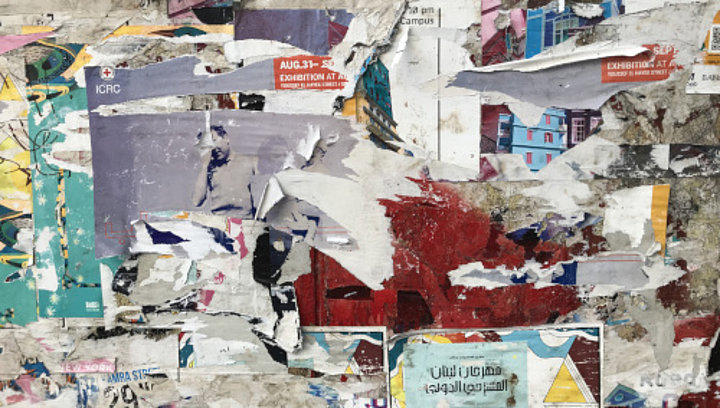
Minor/Small Literature(s). Perspectives on World Literature from Elsewhere
11.-20. Juli 2019, ZfL Berlin
Konzept: Zaal Andronikashvili (Leibniz-Zentrum für Literatur- und Kulturforschung, Berlin)
Die Transregionale Akademie nimmt das von Franz Kafka entworfene Konzept der kleinen Literaturen auf und wird sich mit Literaturen befassen, die häufig in den Debatten um Weltliteratur übersehen werden: Literatur aus kleineren Ländern, Literatur von Immigrant*innen, Minoritäten oder marginalisierten Gruppen oder Personen, sowie auch Literatur in Minderheitensprachen. Im Kontrast zu vorherrschenden Methoden, Weltliteratur im Gegensatz zu nationalen Literaturen vorzustellen, stellt die Akademie die Pluralität von Sprachen, Kulturen, sowie auch ästhetische und künstlerische Praktiken in den Mittelpunkt. Die Akademie umfasst zwei öffentliche Keynote Lectures: Am 17. Juli um 18:00 Uhr spricht Pheng Cheah (UC Berkeley) zum Thema »Tools for Rethinking Postcolonial World Literature«. Am 18. Juli um 18:00 Uhr begrüßen wir B. Venkat Mani (U Wisconsin-Madison) zu einer Public Lecture »Addresses of our Last Homes«.
Mehr Info...
Nearly a century ago, Franz Kafka has introduced the concept of kleine Literatur to signify not just a literature of a small nation or minority, but the descriptive potential of every literature. This Academy will explore the concept of minor literatures in a comparative and transregional approach. Its participants will discuss literatures that are often missing in the debates on world literature, understanding minor/small literature are understood here in the broadest sense as literatures of smaller nations, literatures of immigrants, minorities and marginalized groups or individuals, as well as literatures in minority languages. In contrast to prevalent modes of presenting world literature in opposition to national literatures, the Academy places the plurality of languages and cultures, as well as aesthetic and artistic practices at the center of debate. On 17 July at 6pm, Pheng Cheah (U Berkeley) will present “Tools for Rethinking Postcolonial World Literature” in a public lecture. A second keynote with the theme “Addresses of our Last Homes” will be presented by B. Venkat Mani (U Wisconsin-Madison) on 18 July at 6 pm..
More info...
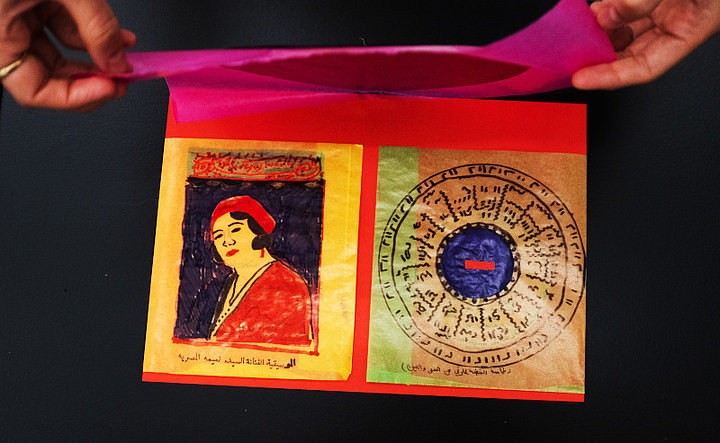
Fragment – Power – Public: Narrative, Authority and Circulation in Archival Work
26. August - 6. September 2019, American University Beirut
Die Akademie thematisiert die Art und Weisen, wie eine jüngere Generation von Wissenschaftler*innen und Künstler*innen aus dem Mittleren und Nahen Osten und angrenzenden Regionen mit neuen Ideen, alternativen Archiven und Darstellungsformen eine Archäologie der Gegenwart zu entwerfen versucht, um Freiräume in Kultur, Politik und Gesellschaft zu gewinnen. Die Transregionale Akademie wird im Rahmen unseres EUME-Programms kuratiert von Rasha Chatta (EUME Fellow 2018/19), Leyla Dakhli (CNRS / Centre Marc Bloch, Berlin), Pascale Ghazaleh (American University in Cairo / EUME-AvH-Fellow 2017-19), Zeina G. Halabi (AUB / EUME-AvH-Fellow 2018-20), Lamia Moghnieh (EUME Fellow of the Fritz Thyssen Stiftung 2019-20), Alia Mossallam (EUME-AvH Fellow 2017-18) und Ala Younis (artist); organisiert in Kooperation mit dem Orient-Institut in Beirut (OIB), der American University in Beirut (AUB) und dem Arab Fund for Arts and Culture (AFAC). Sie findet an der AUB statt.
Mehr Info...
The Academy seeks to probe the ways in which the past, present and future have been and are imagined, represented, and reconfigured in modern historiography, literature, art and thought on archival work. Examining questions of aesthetics, genre, translation, and historiography, it aims to build on ongoing conversations about the practice of literary, artistic and historiographic excavation in order to contribute to the idea and practice of citizenship today. The Transregional Academy is arranged in the framework of EUME and chaired by Rasha Chatta (EUME Fellow 2018/19), Leyla Dakhli (CNRS / Centre Marc Bloch, Berlin), Pascale Ghazaleh (American University in Cairo / EUME Fellow of the Alexander von Humboldt Foundation 2017-19), Zeina G. Halabi (AUB / EUME Fellow of the Alexander von Humboldt Foundation 2018-20), Lamia Moghnieh (EUME Fellow of the Fritz Thyssen Stiftung 2019-20), Alia Mossallam (EUME Fellow of the Alexander von Humboldt Foundation 2017-18), and Ala Younis (artist), and arranged in cooperation with the German Orient Institut in Beirut (OIB), the American University in Beirut (AUB), and the Arab Fund for Arts and Culture (AFAC) at the AUB.
More info...
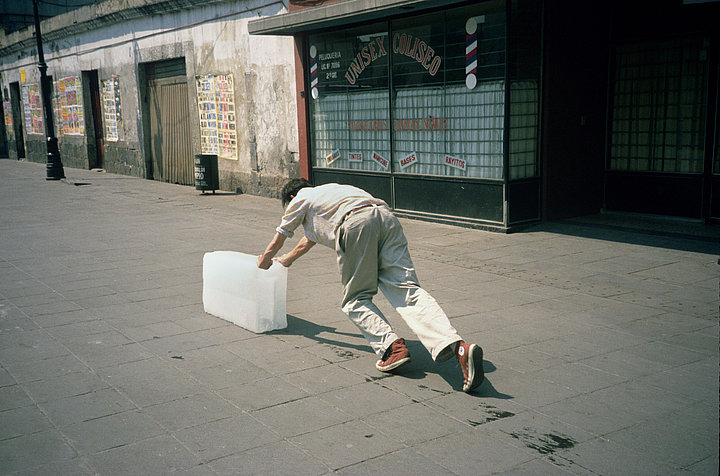
Spaces of Art. Concepts and Impacts in and outside Latin America
26. Oktober bis 3. November, Universidad Nacional Autónoma de México, Mexico City
Konzept: Lena Bader und Thomas Kirchner (beide DFK Paris)
Ziel der Akademie ist es, einen transregionalen Austausch über Raumkonzepte zu ermöglichen. Die Konzepte, Instrumente und der Einfluss gegenwärtiger kunsthistorischer Forschung zu Raum und Räumlichkeit werden anhand von aufschlussreichen Fallstudien an acht Topoi diskutiert: 1) politischer Raum, 2) spiritueller Raum, 3) institutioneller Raum, 4) Kunst im städtischen Raum, 5) Definition und Überschreitung von Grenzen, 6) Genres und Medien, 7) die »räumliche Wende« in einer transregionalen Perspektive, 8) Interdisziplinarität, Transdisziplinarität, Wissenstransfer.
Mehr Info...
Concept: Lena Bader and Thomas Kirchner (both DFK Paris)
The Academy aims to facilitate a transregional exchange on concepts of space. It will discuss the concepts, instruments and impact of contemporary art historical research on space by illuminating case studies based on eight topoi: 1) Political Spaces, 2) Spiritual Spaces, 3) Institutional Spaces, 4) Art in Urban Spaces, 5) Defining and Crossing Boundaries, 6) Genres and Media, 7) The “Spatial Turn” from a Transregional Perspective and 8) Interdisciplinarity, Transdisciplinarity, Knowledge Transfer.
More info...
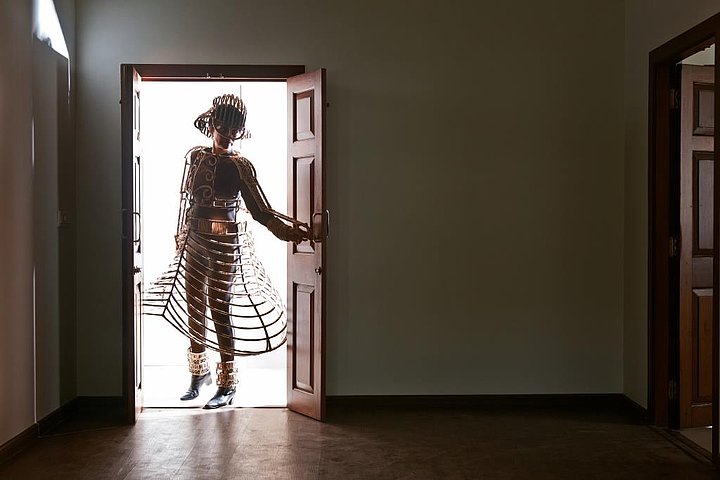
India and the World: New Arcs of Knowledge
24.-30. November 2019 in Mumbai, Kolkata und Chennai, Indien
Konzept: Nachiket Chanchani (University of Michigan, Ann Arbor / Art Histories Fellow 2018/19)
Die Transregionale Akademie richtet sich an Wissenschaftler*innen (Doktorand*innen und Postdoktorand*innen) der Kunstgeschichte und benachbarter Disziplinen, die sich kritisch mit Objekten und Bildern auseinandersetzen, die auf dem indischen Subkontinent hervorgebracht und verwendet werden, und gleichermaßen das Erbe vieler anderer Kulturen und Gemeinschaften darstellen. Die Akademie findet im Chhatrapati Shivaji Maharaj Vastu Sangrahalaya in Mumbai, im Centre for Studies in Social Sciences Calcutta und im Dakshina Chitra Museum in Chennai statt.
Hier geht es zur Ausschreibung. Die Bewerbungsfrist endet am 5. Juli 2019.
Concept: Nachiket Chanchani (University of Michigan, Ann Arbor/ Art Histories Fellow 2018/19)
The Transregional Academy invites doctoral and postdoctoral scholars of art history and related disciplines who are critically investigating objects and images produced and used in the Indian subcontinent, and are interested in explicating how they are equally the heritage of many other cultures and communities. The Academy will be held at Chhatrapati Shivaji Maharaj Vastu Sangrahalaya in Mumbai, Centre for Studies in Social Sciences Calcutta, and Dakshina Chitra Museum in Chennai.
Here you can find thecall for applications. The deadline for applications is July 5, 2019.
Diese Transregionalen Akademien haben bereits stattgefunden:
These Transregional Acadamies have been held already:
Histories of Migrant Knowledges in and across the Transpacific: Agencies, Scales, Translations
28. Mai bis 4. Juni 2019, University of California, Berkeley
Convener: Simone Lässig (GHI Washington DC)
In cooperation with the Pacific Regional Office of the German Historical Institute Washington DC (GHI West) at UC Berkeley, The Maria Sibylla Merian Center for Advanced Latin American Studies in the Humanities and Social Sciences (CALAS), and the Institute of European Studies, UC Berkeley
Mehr Info...
After Violence: The (Im-)Possibility of Understanding and Remembering
10.-17. Juni 2019, »Tkuma« – Ukrainisches Institut für Holocaust-Studien, Dnipro
Convener: Andrii Portnov (Europa-Universität Viadrina Frankfurt/Oder)
In cooperation with Europa-Universität Viadrina Frankfurt/Oder, University of St. Gallen, DHI Warschau, Centre for Applied Anthropology
Mehr Info...
Explorative Workshops
Healing Hands. Sickness, Healthcare, and Remedies from the Colonial Period to Today
12.-13. September 2019, Forum Transregionale Studien, Berlin
Konzept: Dorit Brixius (DHI Paris) und Nayeli Urquiza (University of Kent)
Der Workshop beschäftigt sich mit der Pluralität im Gesundheitswesen. Medizin-Anthropolog*innen, Medizinhistoriker*innen, Sozial- und Rechtswissenschaftler*innen, traditionelle Heiler*innen und Ärzt*innen werden Fragen der Netzwerke und Übersetzungsformen von ortsübergreifendem Heilungswissen diskutieren, sowie konkurrierende und parallele Formen standardisierter und lokaler Heilpraktiken beleuchten. Dabei werden verschiedene Perspektiven historischer und zeitgenössischer Akteur*innen aus unterschiedlichen Teilen der Welt – Westafrika, Südasien, Ostasien, der südwestliche indische Ozean, pazifische Inseln, Eurasien und die Karibik – integriert.
Mehr Info...
Concept: Dorit Brixius (DHI Paris) and Nayeli Urquiza (University of Kent)
The cross-disciplinary workshop will focus on the plurality of healing practices, paying particular attention to dormant networks and modes of translating healing knowledges across (g)localities, as well as shedding light on the existing power relations between knowledge, society, and the law from both a contemporary and a historical perspective. Fostering a dialogue across disciplines, it will bring together medical anthropologists, historians of medicine, socio-legal scholars, traditional healers and physicians with the aim of exploring how remedies exist, persist and thrive in the periphery of contemporary health systems and ‘Western’ medical standardization, integrating different perspectives of (historical) actors from different parts of the world – namely West Africa, South Asia, East Asia, the Southwest Indian Ocean, the Pacific islands, Eurasia and the Caribbean.
More info...
Postcolonial Critique: Latin American and Eastern European Perspectivations (American South – European East)
23.-25. September, Forum Transregionale Studien, Berlin
Konzept: Pablo Valdivia, Clara Frysztacka und Jennifer Ramme (alle Europa-Universität Viadrina, Frankfurt/Oder)
Der Workshop vergleicht osteuropäische und lateinamerikanische Kritik an globalen und regionalen Wissensordnungen. Er zielt darauf ab, die hegemoniale Logik zu durchbrechen, die sich in der Kanonisierung von postkolonialen Theorien, Sprachen und Szenarien ausdrückt, die Deutungshoheit imperialer Großstädte bekräftigt und immer noch kolonialem Denken folgt. Stattdessen soll eine transregionale und multidirektionale Perspektive erprobt werden, bei der ausgehend von Lateinamerika und Osteuropa scheinbar die festen Konzepte von »Westen« und »Europa« aufgebrochen werden.
Mehr Info...
Concept: Pablo Valdivia, Clara Frysztacka and Jennifer Ramme (all Europa-Universität Viadrina, Frankfurt/Oder)
The workshop will gather international participants from different backgrounds for a transregional exploration of Eastern Europe and Latin America as specific loci of post-colonial critique and knowledge production. Proposing instead a transregional and multidirectional perspective from the vantage point of these regions, the Academy will aim to break through the hegemonic logic of theoretical transfer expressed in canonization of post-colonial theories, languages and scenes, which reassert the interpretational prerogative of imperial metropolises and still follows a colonial trajectory.
More info...
Diese Workshops haben dieses Jahr bereits stattgefunden:
These Workshops have taken place so far:
Knowledge, Politics and Publics: Conversations on the Role of the Academic, the Intellectual and the Writer in Times of Change
veranstaltet in Kooperation mit der ZEIT-Stiftung im Rahmen des Stipendienprogramms »Trajectories of Change«, 9. Mai 2019, Forum Transregionale Studien, Berlin
convened in cooperation with the ZEIT-Stiftung in the framework of its scholarship program “Trajectories of Change”
Rethinking Refuge: Processes of Refuge Seeking
6.-7. Juni 2019, Forum Transregionale Studien, Berlin
Convener: Marcia Schenck (re:work, Humboldt-Universität zu Berlin)
Mehr Info...
Women and the Transregional Circulation of Knowledge, from 1800 to 1950
20.-22. Juni 2019, Forum Transregionale Studien, Berlin
Convener: Tika Ramadhini, Thiago Pinto Barbosa, Heike Liebau (Leibniz-Zentrum Moderner Orient)
Mehr Info...
Programme / Programs
Prisma Ukraïna – Research Network Eastern Europe
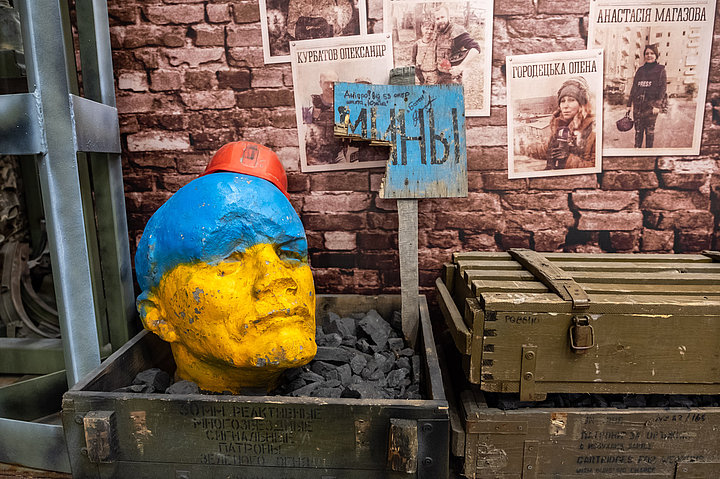
Vom 10. bis 17. Juni 2019 fand die Prisma-Ukraïna-Akademie »After Violence: The (Im-)Possibility of Understanding and Remembering« in Dnipro statt. Sie befasste sich mit der Bedeutung von Gewalterfahrungen in der Ukraine und ihren Nachbarländern im 20. und 21. Jahrhundert und deren Bedeutung für die Erinnerungskultur und das kulturelle Gedächtnis. Andrii Portnov hat die Akademie in einem Video-Podcast vorgestellt und begleitet. Einen ersten Bericht von der Akademie (auf Russisch) finden Sie hier.
Auf der Konferenz »Rethinking Ukrainian Studies: Locally, Regionally, Transnationally«, die am 16. und 17. Mai an der Europa-Universität Viadrina stattfand, wurde erörtert, inwiefern die Ukraine ein vielversprechendes Feld für interdisziplinäre und transnationale Forschung ist, wo die Ukraine-Studien in unterschiedlichen Disziplinen heute stehen, wie sie auf lokaler und internationaler Ebene weiterentwickelt werden können, und welchen Herausforderungen sie sich im deutschen Hochschulsystem stellen müssen. Einen Bericht der Tagung finden Sie hier.
From 10 to 17 June 2019, the Prisma Ukraïna Academy“After Violence: The (Im-)Possibility of Understanding and Remembering”took place in Dnipro. The Academy addressed issues related to the remembrance of traumatical experiences of violence in Ukraine and Eastern Europe in the 20th and 21st centuries and the practices and problems of their cultural representation and memory. Please find Andrii Portnov’s Video Podcast with an introduction and other contributions from the Academy here.A first report (in Russian) was publishedhere.
During the conference »Rethinking Ukrainian Studies: Locally, Regionally, Transnationally«, that was held 16 and 17th May at the Europa-Universität Viadrina, scholars from various disciplines discussed the state and the future of Ukrainian Studies. What are Ukrainian studies nowadays? How could they develop both locally and internationally? Which challenges and chances do they offer to the German university system? These were only some of the questions debated by the participants of “Rethinking Ukrainian Studies”. Please find a conference reporthere.
Audio/Video
Die Vorträge von den Workshops »When the Muses are not Silent: Intellectuals’ and Artists’ Responses to the Ukraine-Russia Conflict and Post-Maidan Developments in Ukraine« (18.06.2018), »Transnational Conversations: Scientists and the Big Questions of Twentieth-Century History« (25.06.2018) und »At Home: Jews and Muslims in Eastern Europe« (28.-29.06.2018), die Diskussion »Studying Eastern Europe through a Global Prism« (14.11.2017) sowie der Vortrag von Nataliya Gumenyuk auf der Jahreskonferenz des Forum Transregionale Studien und der Max Weber Stiftung (20.11.2018) sind nun online auf unserer Webseite sowie über Soundcloud und Vimeo abrufbar.
Talks from the workshops “When the Muses are not Silent: Intellectuals’ and Artists’ Responses to the Ukraine-Russia Conflict and Post-Maidan Developments in Ukraine” (18.06.2018), “Transnational Conversations: Scientists and the Big Questions of Twentieth-Century History” (25.06.2018) and “At Home: Jews and Muslims in Eastern Europe” (28.-29.06.2018), the roundtable discussion “Studying Eastern Europe through a Global Prism” (14.11.2017) and the lecture by Nataliya Gumenyuk given at the Annual Conference of the Forum Transregionale Studien and the Max Weber Foundation (20.11.2018) are available online on our website, Soundcloud and Vimeo.
Europa im Nahen Osten – Der Nahe Osten in Europa / Europe in the Middle East—The Middle East in Europe (EUME)
EUME Fellows 2018/19
Wir freuen uns über die Ankunft von sieben weiteren EUME-Fellows, die ihre Forschungsaufenthalte im Frühling und Sommer 2019 in Berlin verbringen werden:
Yassin Al Haj Saleh ist ein syrischer Intellektueller und Schriftsteller. Er arbeitet von März bis November 2019 als Senior EUME-Fellow der Gerda Henkel Stiftung an seinem Projekt »Modes of Mass Murder: A Comparative Study« weiter. Im akademischen Jahr 2017/18 und bis März 2019 war er Fellow des Wissenschaftskollegs zu Berlin.
Elmir Mirzayev ist ein aserbaidschanischer Komponist, Musikwissenschaftler, Publizist und Schriftsteller. 2005 wurde er für sein Werk Sieben Minuten für Orchester (1999) vom Kulturministerium Aserbaidschans mit dem Preis für das beste symphonische Werk ausgezeichnet. Von März 2019 bis Februar 2021 arbeitet er als gemeinsamer Fellow von EUME und dem Institut für Slawistik der Humboldt-Universität zu Berlin an seinem Forschungsprojekt »Zwischen Moderne und Archaik: Die aserbaidschanische Musikkultur des 20. Jahrhunderts im Spannungsfeld dreier (ehemaliger) Imperien«.
Behlül Özkan ist Associate Professor am Department of International Relations der Marmara-Universität, Istanbul. Er ist Autor der Monographie From the Abode of Islam to the Turkish Vatan: Making of a National Homeland in Turkey (Yale University Press, 2012). Sein Forschungsinteresse fokussiert sich auf Fragen des politischen Islams in der Türkei und in Europa, wozu er auch als EUME-Fellow von April bis September 2019 forschen wird.
Die Kulturwissenschaftlerin Hanan Toukan lehrt am Bard College Berlin. Zuvor war sie bereits 2012-13 als EUME-Fellow in Berlin. Ihr Forschungsinteresse gilt Medien und Film sowie politischen und internationalen Fragestellungen. Als EUME-CNMS Fellow der Alexander von Humboldt-Stiftung arbeitet sie an ihrem Forschungsprojekt zur Bildpolitik von palästinensischen Museen.
Omar Al-Ghazzi ist Assistant Professor am Department of Media and Communications der London School of Economics and Political Science (LSE). Seine Forschung widmet sich Fragen der globalen Kommunikation und der vergleichenden Journalistik mit besonderem Fokus auf digitalen Aktivismus und kollektive Erinnerung im Nahen Osten und Nordafrika. Im Sommer 2019 und von April bis Dezember 2020 wird er als EUME-CNMS Fellow der Fritz Thyssen Stiftung an seinem Forschungsprojekt »Histories of the Future in the Post-2011 Arab World« arbeiten.
Außerdem kehren die Historikerin Pascale Ghazaleh (American University in Cairo / EUME Fellow der Alexander von Humboldt-Stiftung 2017-19) und die Literaturwissenschaftlerin Zeina G. Halabi (American University of Beirut / EUME-CNMS Fellow der Alexander von Humboldt-Stiftung 2018-20) im Frühling und Sommer 2019 nach Berlin zurück, um ihre Forschungsaufenthalte fortzusetzen.
We are pleased to welcome seven new EUME Fellows who will take up their research stays in Berlin during spring and summer 2019:
Yassin Al Haj Saleh, Syrian intellectual and writer, will be a Senior EUME Fellow of the Gerda Henkel Foundation from March to November 2019. He has been a Fellow of the Wissenschaftskolleg zu Berlin in 2017/18 and until March 2019. He will continue to work on his project “Modes of Mass Murder: A Comparative Study”.
Elmir Mirzayev is an Azerbaijani composer and musicologist, as well as writer and journalist. His works have been performed at various festivals and in international concert halls. From March 2019 to February 2021, he will be a joint Fellow of EUME and the Department of Slavic and Hungarian Studies at the Humboldt-Universität zu Berlin, working on his research project “From Modernity to the Archaic: The Azerbaidjani Music Culture of the 20th Century in the Context of Three (Former) Empires”.
Behlül Özkan is Associate Professor at the Department of International Relations of Marmara University, Istanbul. He is the author of From the Abode of Islam to the Turkish Vatan: The Making of a National Homeland in Turkey (Yale University Press, 2012). His research interests focus on political Islam in Turkey and Europe, which are topics that he will be conducting research on during his EUME Fellowship from April to September 2019.
Cultural scientist Hanan Toukan teaches at Bard College Berlin. She was previously a EUME Fellow in 2012/13. Her research interests include media and film, as well as politics and international studies. As EUME-CNMS Fellow of the Alexander von Humboldt Foundation, she will be working on her research project about the visual politics of museums in Palestine.
Omar Al-Ghazzi is Assistant Professor in the Department of Media and Communications at the London School of Economics and Political Science (LSE). His expertise is in global communication and comparative journalism, with a focus on political contention, digital activism and collective memory in the Middle East and North Africa. In summer 2019 and from April to December 2020, he will be a EUME-CNMS Fellow of the Fritz Thyssen Foundation, working on his research project “Histories of the Future in the Post-2011 Arab World”.
Furthermore, the historian Pascale Ghazaleh (AUC / EUME Fellow of the Alexander von Humboldt Foundation 2017-19) and the literary scholar Zeina G. Halabi (AUB / EUME-CNMS Fellow of the Alexander von Humboldt Foundation 2018-20) will return to Berlin to continue their research stays in spring and summer 2019.
EUME Berliner Seminar
Unter dem Oberthema »Narratives of Citizenship II: Past Imperfect, Future Tense« wurde das EUME Berliner Seminar im Sommersemester 2019 fortgesetzt.
Under the theme of the summer term, »Narratives of Citizenship II: Past Imperfect, Future Tense«, the EUME Berliner Seminar has continued since April 2019:
Termine im Juli 2019:
Dates in July 2019:
10. Juli 2019, 17 Uhr
Mohammed Bamyeh (University of Pittsburgh/EUME Fellow 2018/19)
Lifeworlds of Islam: The Pragmatics of Religion
Chair: Yasmeen Daher (University of Montreal)
17. Juli 2019, 17 Uhr
Dima Ayoub (Middlebury College)
Paratext and Power in Arabic Literary Translation
Chair: Refqa Abu-Remaileh (FU Berlin/EUME Fellow)
Informationen und vollständiges Programm / More information and program
Falls Sie am Seminar teilnehmen möchten, melden Sie sich bitte an: / If you would like to attend a seminar, please register: eume(at)trafo-berlin.de.
EUME Workshops
Citizenship und Property
8.-9.Juli 2019, FU Berlin, Berlin Graduate School Muslim Cultures and Societies, Altensteinstraße 48
14195 Berlin
In dem Workshop, der von den EUME-Fellows Pascale Ghazaleh und Seda Altug geleitet wird, sollen Fragen nach der Entwicklung des Spannungsverhältnisses von Eigentum, Staatsbürgerschaft und Souveränität diskutiert werden. Wem gehören öffentliche Güter, wie haben sich Eigentums- und Zugangsrechte auf Land, kulturelles Erbe und andere öffentliche Güter, Vorstellungen und Praktiken von Staatsbürgerschaft seit dem 19. Jahrhundert entwickelt? Wer und wie wird bestimmt, was öffentliche Güter sind und entscheidet im Namen des Volkes über ihre Verwendung?
Weitere Informationen finden Sie demnächst auf unserer Website.
In this workshop organised by EUME Fellows Pascale Ghazaleh und Seda Altug, the participants will discuss questions on the relations between property, citizenship and sovereignty. Who is deciding on public goods and their purpose, how did property of and access to territory, cultural heritage and other public goods, imaginations and practices of citizenship change since the 19th century.
More info soon on ourwebsite.
Vergangene Workshops / Past Workshops
Beginnings and Legacies of Recording Technologies in the Eastern Mediterranean
4.-5. April 2019, Forum Transregionale Studien, Wallotstr. 14, 14193 Berlin
Mehr Info...
Power in Medicine: Interrogating the Place of Medical Knowledge in the Modern Middle East,
11.-12. April 2019, Harnack-Haus, Tagungsstätte der Max-Planck-Gesellschaft, Ihnestr. 16-20, 14195 Berlin
Mehr Info hier oder auf dem TRAFO Blog
The Politics of Communication Across the Mediterranean: From Manuscripts to the Internet
26. Juni 2019, 15:00-19:00 Uhr, Forum Transregionale Studien, Wallotstr. 14, 14193 Berlin
Mehr Info...
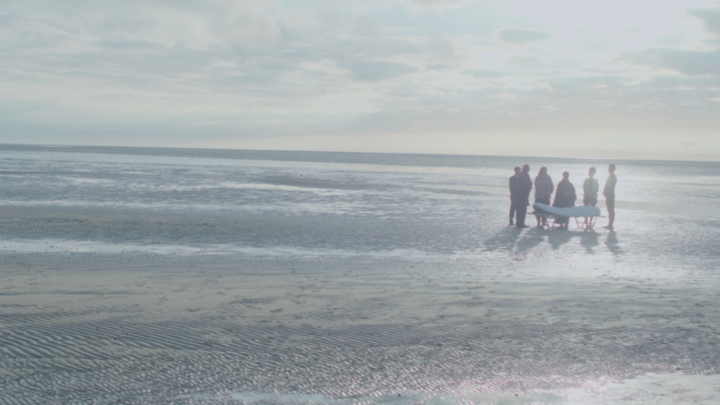
Arabische Filmreihe / Arab Film Series »Beyond Spring«
Werkstatt der Kulturen, Berlin
EUME hat seine Kooperation mit dem Verein Mayadin al-Tahrir und der Werkstatt der Kulturen in Form der gemeinsamen Filmreihe »Beyond Spring« fortgesetzt, die sich mit grundlegenden gesellschaftlichen und politischen Problemen der zeitgenössischen arabischen Welt beschäftigt.
Mehr Info...
EUME continues its cooperation with Mayadin al-Tahrir and the Werkstatt der Kulturen in the joint film series »Beyond Spring«. The screenings take place at 7:30 pm at Werkstatt der Kulturen (Wissmannstr. 32, 12049 Berlin) and are followed with discussions with scholars and other guests.
More info...
Art Histories and Aesthetic Practices
Neues Forschungsprogramm / New Research Program
4A Laboratory: Art Histories, Archaeologies, Anthropologies, Aesthetics
Wir freuen uns, dass ab Oktober 2019 mit 4A Lab ein neues Forschungs- und Stipendienprogramm seine Arbeit in Berlin aufnehmen wird, das die Programme Art Histories and Aesthetic Practices (2013–2019) und Connecting Art Histories in the Museum (2009–2019) fortsetzt und weiterentwickelt. 4A Lab ist eine Kooperation des Kunsthistorischen Instituts in Florenz (Max-Planck-Institut) und der Stiftung Preußischer Kulturbesitz mit ihren umfangreichen Sammlungen und Forschungseinrichtungen. Weitere Partner sind unter anderem die Humboldt-Universität zu Berlin und das Forum. 4A Lab eröffnet einen innovativen Dialograum zwischen Kunstgeschichte, Archäologie, Ethnologie und Ästhetik (4 A), der sich mit jährlich wechselnden Forschungsschwerpunkten Objekten, Praktiken, Ökologien und Narrationen widmet. Das neue Programm zielt auf transversale Vernetzungen und auf die kritische Reflexion der Fachsprachen und Terminologien im Austausch zwischen den Disziplinen. 4A Lab wird herausragende Nachwuchswissenschaftler*innen aus Ländern in Afrika, Asien, den Amerikas, Australien und Europa für einen Zeitraum von 9 Monaten nach Berlin bringen. Mit »Pflanzen« widmet sich 4A Lab im akademischen Jahr 2019/2020 einem Thema von hoher aktueller Bedeutung.
Mehr Info...
We are pleased to announce the new Berlin-based research and fellowship program 4A Lab, starting in October 2019 as a fusion, progression, and restructuring of Art Histories and Aesthetic Practices (2013–2019) and Connecting Art Histories in the Museum (2009–2019). 4A Lab is a cooperation between the Kunsthistorisches Institut in Florenz, a research institute of the Max-Planck-Society, and the Stiftung Preußischer Kulturbesitz including their museums and research institutions. Further partners are the Humboldt-Universität zu Berlin and the Forum. 4A Lab attempts to create a dialogue between art histories, archaeologies, anthropologies and aesthetic practices, as well as other disciplines concerned with objects, practices, ecologies, and narratives. The program aspires to promote transversal networking and critical reflections on historical and contemporary languages and terminologies. Central to 4A Lab is a fellowship program which will bring excelling doctoral and postdoctoral researchers from countries of Africa, Asia, the Americas, Australia and Europe to Berlin.
More info...
Art Histories Travelling Seminar 2019
In inhaltlichem Zusammenhang mit dem Symposium »Beyond Trauma? A Transregional Perspective on Trauma and Aesthetics« (13.-15. Juni 2019, Forum Transregionale Studien und ICI Berlin), das von Stéphanie Benzaquen-Gautier und Afonso Dias Ramos (beide Art Histories Fellows 2018/19) organisiert wurde, fand das diesjährige Travelling Seminar unter dem Titel »Cultural Heritage and Post-Genocide Memory« vom 14. bis 25. März in Kambodscha und Singapur statt. Diskussionen mit Forscher*innen, Archivar*innen, Kurator*innen und Restaurator*innen führten die Teilnehmer*innen unter anderem am Center for Khmer Studies, im National Museum Cambodia, im Bophana Research Center und im Tuol Sleng Genocide Museum (mit Barbara Thimm, GIZ Advisor). Fragen nach Genozid und Erinnerungspolitiken, kulturellem Erbe, Kolonialismus, der Urbanistik von Phnom Penh, der sogenannten Neuen Khmer Architektur in den 1960ern und 70ern sowie die Verflechtungen von religiösen und rituellen Praktiken in den Tempelanlagen von Angkor Thom, Banteay Srei, Sambor Prei Kuk und Phnom Kulen standen im Zentrum der Diskussionen.
Die Dokumentation des Travelling Seminars folgt in Kürze auf www.art-histories.de
In relation to the symposium “Beyond Trauma? A Transregional Perspective on Trauma and Aesthetics”, convened in June by Art Histories Fellows 2018/19 Stéphanie Benzaquen-Gautier and Afonso Dias Ramos (13 – 15 June, 2019 at Forum Transregionale Studien and ICI Berlin), this year’s Travelling Seminar was held under the title “Cultural Heritage and Post-Genocide Memory in Cambodia” from 14 to 25 March in Cambodia and Singapore. Meetings and discussions with scholars, archivists, artists, and curators took place at the Center for Khmer Studies, the APSARA National Authority, the National Museum of Cambodia, at Bophana Audiovisual Research Center, and Tuol Sleng Genocide Museum (with Barbara Thimm, GIZ Advisor). The itinerary included intensive discussions on genocide and memory, layers of colonialism, dance and politics of cultural heritage, the urbanism of Phnom Penh and French colonial rule, the impact of New Khmer architecture in the 1960s and 70s as well as the entanglements of religious and ritual practices at the temple complexes of Angkor Thom, Banteay Srei and Sambor Prei Kuk, and sites such as Phnom Kulen.
A short documentation of the Travelling Seminar will be published soon onwww.art-histories.de
Art Histories Seminar
Ab April wurde das Art Histories Seminar fortgesetzt, in dem die Art Histories und CAHIM Fellows sowie wissenschaftliche Gäste ihre Forschungen vorstellen. Nächste Termine:
On a weekly basis, the Art Histories and CAHIM Fellows as well as guest lecturers are presenting their research projects in the Art Histories Seminar (summer term). Next dates:
1. Juli 2019, 17:00 Uhr, Forum Transregionale Studien, Wallotstr. 14, 14193 Berlin
Stéphanie Benzaquen-Gautier (Erasmus University, Rotterdam/Art Histories Fellow 2018/19)
Ghosts in Transition: Figures of Haunting in Post-Conflict Contemporary Art
8. Juli 2019, 17:00 Uhr, Wissenschaftskolleg zu Berlin, Villa Jaffé, Wallotstr. 10, 14193 Berlin
Nadja Danilenko (Universität Hamburg/Berlin Graduate School Muslim Cultures and Societies, FU Berlin)
Grasping the World in Ottoman Istanbul. Cartography between Tradition and Art in the 16th Century
Seminarprogramm / Seminar program: www.art-histories.de
Das Seminar steht allen Interessierten offen. Wir bitten um Anmeldung an / External guests are welcome to join the seminar. Please register in advance viaarthistories(at)trafo-de
Kommunikation & Publikationen / Communication & Publications
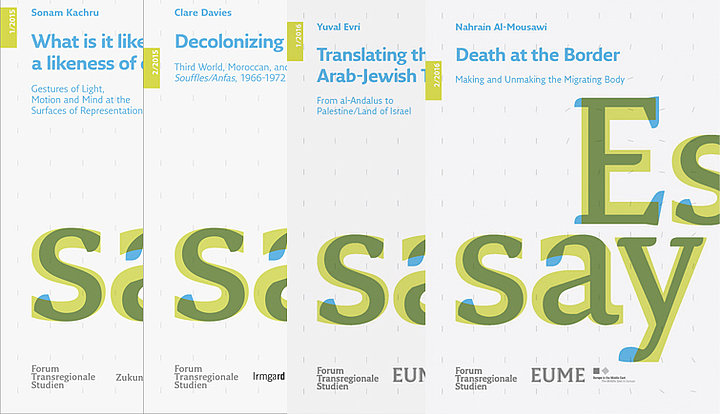
Im Juli 2019 erscheint mit »Past Imperfect, Future Tense. Writing People’s Histories in the Middle East Today« von Pascale Ghazaleh der fünfte Band der »Essays des Forum Transregionale Studien«. Der Band wird auf der Open-Access-Plattform perspectivia.net und in einer limitierten gedruckten Auflage verfügbar sein. Im Sommer erscheint außerdem der vierte Band der Reihe »Areas and Disciplines« mit dem Titel »All Things Transregional? A Conversaton about Transregional Research«. Ebenfalls für Juli ist die Open-Access-Veröffentlichung des Bands »Jüdischer Islam« von Susannah Heschel aus der Schriftenreihe des Forum Transregionale Studien bei Matthes & Seitz geplant.
In July 2019, the fifth volume of the “Essays of the Forum Transregionale Studien” will be published on the open access platformperspectivia.netand in a limited printed edition. Moreover, the fourth volume in the series “Areas and Disciplines” entitled “All Things Transregional? A Conversation about Transregional Research” will appear this summer. Also in July, the open access edition of Susannah Heschel’s book“Jüdischer Islam”, published with Matthes & Seitz Berlin, will appear on perspectivia.net.
Wissenschaftliche Blogs / Scientific Blogs
trafo.hypotheses.org
academies.hypotheses.org
Ausgewählte Beiträge:
Selected articles:
“Freedom: Home, Prison, Exile… and the World” – Yassin Al Haj Saleh in conversation with Nayera A. Soliman, in: TRAFO-Blog, 26.04.2019.
Lesley Braun, »Cape Verde and the Atlantic: Crossroads of People, Goods and Capital Investments (1460–1610)«, in: TRAFO – Blog for Transregional Research, 16.04.2019
RashaChatta (EUME Fellow 2018-20), »Taking Refuge: Weaving Memory and History in Comics – An Interview with Zeina Abirached«, in: TRAFO – Blog for Transregional Research, 31.05.2019,
Nataliya Gumenyuk (Prisma Ukraïna Fellow 2015-16), »Regaining Public Trust in Times of Populism. Lessons from Ukraine«, in: TRAFO – Blog for Transregional Research, 01.02.2019,
May Hawas (EUME Fellow 2015-16), »How is World Literature Pedagogy for the Public?«, in: TRAFO – Blog for Transregional Research, 20.06.2019,
Siarhei Hruntou, »Fieldwork Report After Violence: The (Im-)Possibility of Understanding and Remembering« (in Russian), in: Transregional Academies Blog, 24.06.2019
Jan-Markus Vömel, »Green was the Name of my Civilization: Turkish Islamism in the Late 1970s«, in: TRAFO – Blog for Transregional Research, 13.06.2019
Birgit Meyer, »Social Sciences, Humanities and the World«, in: TRAFO – Blog for Transregional Research, 25.03.2019
»I was fascinated by all the places I could experience in a book« – 5in10 with Shailka Mishra, in: TRAFO – Blog for Transregional Research, 08.05.2019
»Women and the Transregional Circulation of Knowledge, from 1800 to 1950« – Interview with Heike Liebau, Tika Ramadhini and Thiago Pinto Barbosa, in: TRAFO – Blog for Transregional Research, 29.05.2019,
Beitragsserie zum Workshop »Power in Medicine«, co-organized by EUME and the Max Planck Institute for the History of Science
Fellow-Publikationen / Fellow Publications
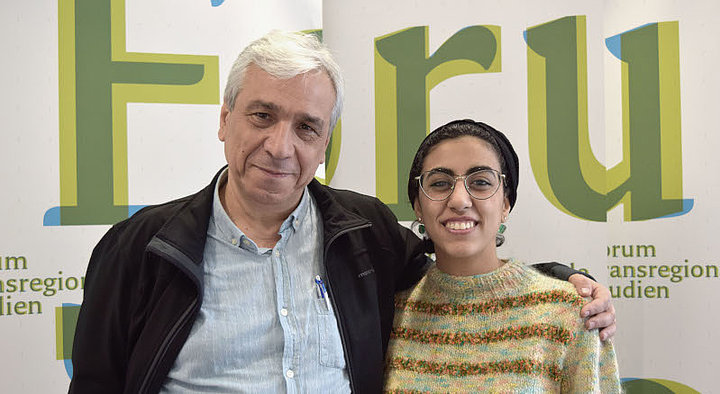
Al Haj Saleh, Yassin (Senior EUME Fellow der Gerda Henkel Stiftung 2019), »‚Assad oder keiner!‘ Von der Aneignung der Macht zur Aneignung der Gesellschaft. Eine Einordnung des Syrien-Konfliktes vor dem Hintergrund der syrischen Geschichte unter der Baath-Partei«, in: Rosa Luxemburg Stiftung, April 2019.
Hanoosh, Yasmeen (EUME Fellow 2009/10), The Chaldeans: Politics and Identity in Iraq and the American Diaspora, I.B. Tauris, 2019.
Kareem, Mona (EUME Fellow 2018/19), »Unlearning Poetry with Pat Parker«, in: Blog Los Angeles Review of Books, 04.03.2019.
Kareem, Mona (EUME Fellow 2018/19), »He Goes to the Place: Sargon Boulus Translates Himself and Others«, in: Specimen, 16.01.2019.
Kareem, Mona (EUME Fellow 2018/19), »Arabic Literature and the African Other«, in: Africa Is A Country, 05.05.2019.
Ouaissa, Rachid (EUME member), »Quelle transition démocratique pour l’Algérie?«, in: TSA Algerie, 11.03.2019.
Ouaissa, Rachid (EUME member), »Organiser une transition dans un cadre constitutionnel est une contradiction«, in: ElWatan.com, 11.04.2019.
Saghieh, Khaled (EUME Fellow 2016/17), »1990s Beirut: Al-Mulhaq, Memory, and the Defeat«, in: e-flux Journal 97, Februar 2019.
Türkyilmaz, Yektan (EUME Fellow 2017-20) & Sinem Adar, »Turkey: The Post-election Brawl – a Regime at a Crossroads«, in: Open Democracy, 30.04.2019.
Audio/Video
Edna Bonhomme (Max Planck Institute for the History of Science),
»Liver and the Embodiment of Disease: Interview with Jennifer Derr«, in: TRAFO Blog, 28.02.2019.
Avi-ram Tzoreff, 10.04.2019
»Desacralizing the Nation State: R. Binyamin, Bi-nationalism in Palestine and the Critique of Zionist Secular Discourse«
Sumit Mandal, 02.04.2019
»Arabs in the Malay World: Creole Histories in a Racialised Context«
Malak Labib, 13.02.2019
»'From the Needle to the Rocket': International Development, Social Engineering and the Politics of Economic Planning in Egypt (1941-1965)«
Burak Onaran, 09.01.2019
»New Histories for a New Turkey: The First Battle of Kut (1916) and the Reshaping of the Ottoman Past«
Görkem Akgöz, 16.01.2019
»German 'Rationalisierung' in 1930s Turkish Shop Floors: Experts, Exiles and Textiles«
Diana Abbani, 19.12.2018
»Musical Life in Beirut: Leisure, Cosmopolitanism and Struggles at the Beginning of the 20th Century«
Nir Shafir, 12.12.2018
»Pamphleteering Islam: New Media and New Publics in the 17th-Century Ottoman Empire«
Alia Mossallam, 05.12.2018
»Strikes, Riots and Laughter: Tracing a Geography of Resistance by Egyptian Workers in World War I«
Cihan Tekay, 28.11.2018
»International Bankers and Socialist Workers: Infrastructures of Capitalism between Brussels and Constantinople, 1909-1924«
Arturo Monaco, 11.07.2018
»The Rebellious in Tradition: Sufism and Surrealism in Issam Mahfouz' Work«
Amr Hamzawy, 31.10.2018
»The Meaning of Justice and the Rule of Law in Post-2013 Egypt«
Mohammed Bamyeh & Yasmeen Daher, 24.10.2018
»Anarchy as Order: Civil Society, Responsibility and the Meaning of Freedom after the Arab Revolutions«
Pascale Ghazaleh, 17.10.2018
»Past Imperfect, Future Tense: Writing People's Histories in the Middle East Today«
Thomas Loy, 29.06.2018
»The Chala – “Jewish Muslims" in Soviet Central Asia«
Leo Lucassen, 20.11.2018
»Expert Knowledge on Migration in the Public Arena: How to Get Your Message Through?«
Sofiya Grachova, 26.06.2018
»Anthropology, Truth, and Self-Fashioning: Lives and Work of Rostyslav Yendyk (1906-1974) and Lev Nikolaev (1898-1954)«
Oksana Myshlovska, 19.06.2018
»Dealing with the difficult pasts across the former imperial border: transitional justice and memory politics in Pidvolochysk and Volochysk«
Maria Rhode, 25.06.2018
»Colonial questions and colonial science? Anthropology and the State in interwar Poland«
Mariia Terentieva, 19.06.2018
»Ukraine's Digital Civil Society Against Russian Propaganda: Whose Story Will Make History?«
Alexandra Yatsyk, 19.06.2018
»Friendlies? Representations of the Donbas region people in post-Maidan art in Kharkiv«
Yuliya Yurchuk, 19.06.2018
»Historians in Times of Trouble: New History-Writing Projects in Ukraine after 2014«
Oleksandr Zabirko, 19.06.2018
»A War for the Better Past: Political Visions in Post-Soviet Counterfactual Histories«
Nataliya Gumenyuk, 20.11.2018
»Regaining Public Trust in Times of Populism. Lessons from Ukraine«
Frank Bösch, 20.11.2018
»Western Knowledge About Reforming China (1972–1989)«
Michael Allan, 18.07.2018
»Reflections on Orientalism and Early Cinema«
Bildnachweise / Image credits:
1. ©Georges Khalil
2. Francis Alys, Paradox of Praxis 1, Mexico-City 1997
3. From the workshop “Out of the Archives”, 12-14 July 2018, Berlin. ©Mohamed Badarne
4. Shakuntala Kulkarni, Photo Performance, B/6 Saraswat Co-Op Building, Gamdevi, 2010-12. © Shakuntala Kulkarni and Chemould Prescott Road
5. In Dnipro. ©Forum Transregionale Studien
6. Yassin Haj Al Saleh and Nayera A. Soliman. ©Forum Transregionale Studien
7. Essays des Forum Transregionale Studien. ©Forum Transregionale Studien/Design: pluralnet
Kontakt / Contact:
Dr. Moritz Buchner
Communication and Publications
Forum Transregionale Studien
Wallotstr. 14
14193 Berlin
T +49 (0)30 89 001-422
F +49 (0)30 89 001-440
moritz.buchner(at)trafo-berlin.de
presse(at)trafo-berlin.de
forum-transregionale-studien.de
trafo.hypotheses.org
academies.hypotheses.org
Facebook
Twitter

